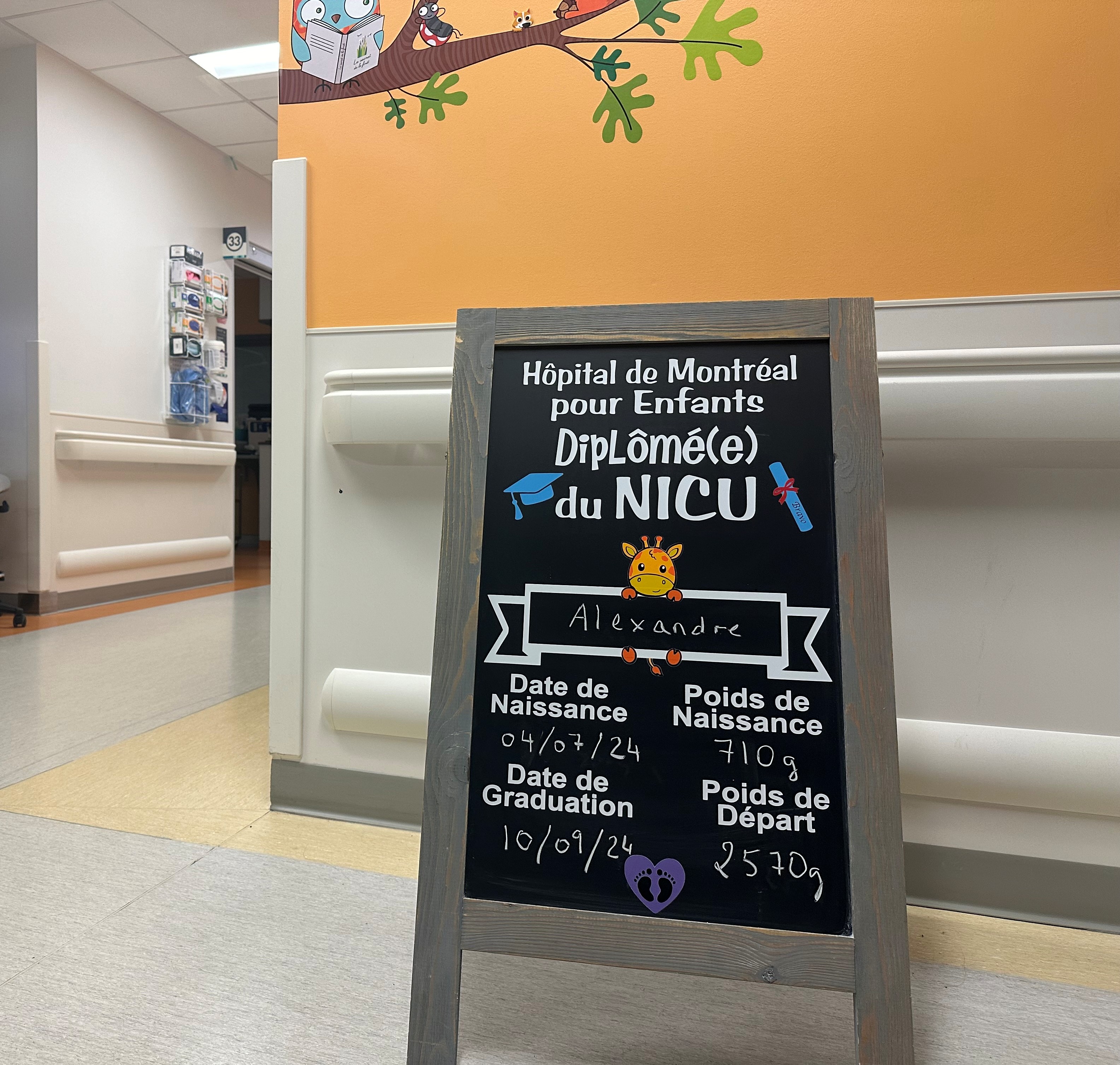Most babies go to one of the following places when they leave Montreal Children’s NICU:
Home
Babies are ready to go home when:
- They can breathe by themselves and don’t need their breathing or heart rate to be monitored.
- They can drink milk by the breast, bottle or a feeding tube and are gaining weight. If your baby is going home with a feeding a tube, you will need to learn how to use the feeding tube.
- They can stay warm in a regular crib.
- Any medical problem they had in the NICU is gone or can be managed at home
Sometimes babies are not ready to go home, but they don’t need the high level of intensive care at the Montreal Children’s Hospital NICU. If this is the case, your baby will be transferred to either the Pediatric Medicine Ward at the Montreal Children’s Hospital or a NICU/Nursery at a hospital near your home.
Pediatric Medicine Ward at the Montreal Children’s Hospital
Your baby will have their own room with a bathroom, a window and a couch for parents to sleep. Babies who go to the Pediatric Medicine Ward.
- Are 35 weeks corrected gestational age or older
- Weigh 2kg or more
- Don’t need any help to breathe or need only oxygen through small nasal prongs (“low flow”)
- Continue to need daily care by a pediatrician or other healthcare providers at the Montreal Children’s Hospital
NICU/Nursery at Another Hospital
Each hospital is a little different. If you have a hospital preference, please let your baby’s NICU team know. In general, babies who go to a NICU/Nursery at another hospital:
- Don’t need any help to breathe
- Continue to need daily care by a doctor and nurse

